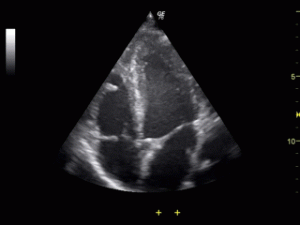
Stress echocardiography
An exercise stress echocardiogram is a combination of exercise stress test with the information which can be obtained by echocardiogram, which increases the accuracy of the test. Diagnosing coronary artery disease and assessing your risk for heart attacks early on can help prevent future complications.
The Accuracy of Stress Echocardiography is approximately 85-90%
Preparation
- This test normally takes between 45 and 60 minutes.
- Make sure not to eat or drink anything for two to three hours before the test.
- Avoid things that interfere with your heart rate such as coffee, nicotine.
- If you take medications, ask your doctor if you should withhold them prior to the test.
- Wear comfortable, loose-fitting clothes and good walking or running shoes.
The Test
The test will be explained to you and you will be asked to sign a consent form prior to starting the test.
The first stage of the test involves taking pictures of your heart when you are at rest. At this point, you are also screened for suitability and to ensure that there are no contraindication for the test.
The second stage of the test involves the treadmill, which the speed and slope increase according to the protocol chosen. Your blood pressure and ECG (electrocardiogram) will be monitored closely by staff. During this stage, if you experience any chest discomfort, marked breathlessness or fatigue, be sure to let the staff know.
Once the exercise is complete, you will be quickly guided back for more images of your heart.
The stressed images are then compared to the resting images for comparison.
Risks with this procedure
This test is safe and noninvasive. Complications are rare. The most common occur only occur in 3:1,000 people but can include: an abnormal heart rhythm, dizziness or fainting and heart attack. There is a risk of heart attack in 1:2,500 people and a risk of death in 1:10,000 people.
Results
Your Cardiologist will explain your test results to you. If the results are normal, your heart is working properly and your blood vessels are probably not blocked due to coronary artery disease. Abnormal test results may mean that a heart attack has damaged your heart previously, or that your heart is not pumping effectively due to a blockage in your blood vessels.
A report will be sent to your referring Doctor on the same day. You should contact your referring Doctor for your results and to discuss if any follow up is required.
